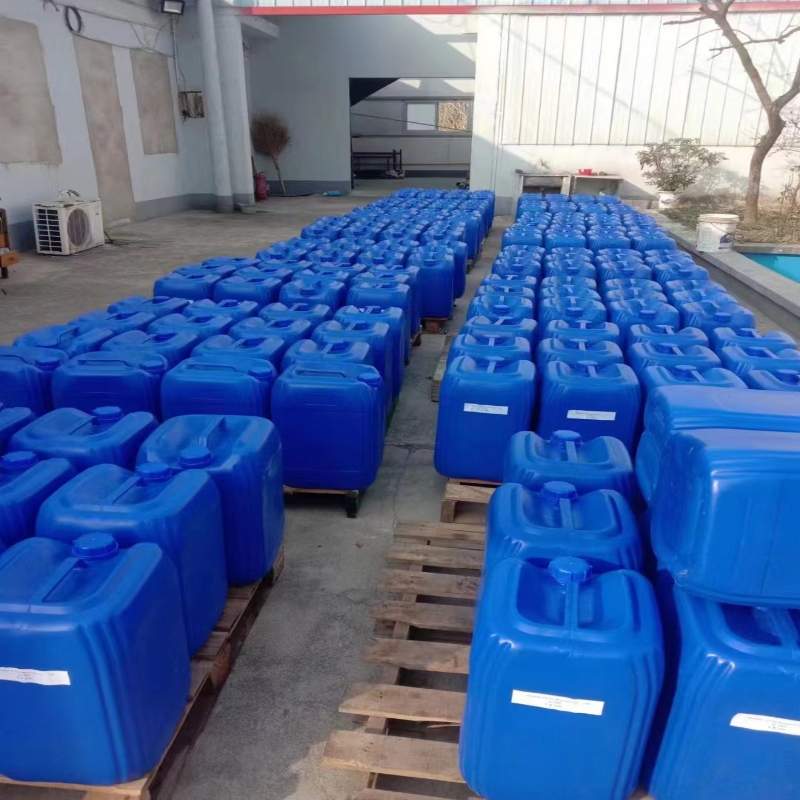-
Categories
-
Pharmaceutical Intermediates
-
Active Pharmaceutical Ingredients
-
Food Additives
- Industrial Coatings
- Agrochemicals
- Dyes and Pigments
- Surfactant
- Flavors and Fragrances
- Chemical Reagents
- Catalyst and Auxiliary
- Natural Products
- Inorganic Chemistry
-
Organic Chemistry
-
Biochemical Engineering
- Analytical Chemistry
-
Cosmetic Ingredient
- Water Treatment Chemical
-
Pharmaceutical Intermediates
Promotion
ECHEMI Mall
Wholesale
Weekly Price
Exhibition
News
-
Trade Service
On Monday, February 28, Eastern time, the Wall Street Journal reported that the members of the International Energy Organization IEA may agree to release 70 million barrels of oil reserves as early as Monday or Tuesday (Bloomberg reported that it weighed the release of about 60 million barrels), international oil prices once fell short-term, WTI crude oil fell more than $1 short-term to $94.
85 / barrel; Brent crude fell nearly $1 to $97.
57 a barrel
in the short term.
The IEA was established during the 1973-74 oil crisis and its initial role was to coordinate responses
to oil supply emergencies.
As energy markets change, the IEA's mission has changed and expanded to include a balanced energy decision-making concept
based on the "4 E's" of improving energy security, economic development, environmental protection and global participation.
As an energy policy advisor to 29 member states, the IEA works with member states to ensure energy reliability, economy and sustainability
for their citizens.
After Russia launched its military operation last week, oil prices hit their highest value
since 2014.
According to IEA head Fatih Birol, the IEA will hold a special ministerial meeting on Tuesday, which will be chaired
by U.
S.
Energy Secretary Jennifer Granholm.
The conference will focus on "the impact of the outbreak of the Russian-Ukrainian conflict on oil supplies and how IEA members can play a role in stabilizing energy markets"
.
Last Wednesday, the Biden administration intended to lower oil prices before the fall elections, and the United States and its allies are considering another emergency supply, namely the release of the Strategic Petroleum Reserve SPR
.
As of January this year, the 50 million barrels of strategic oil reserves announced by Biden last year completed the release
of nearly 40 million barrels.
The current level of the US Strategic Petroleum Reserve has fallen to just over 580 million barrels, the lowest level
since 2002.
Last week, a U.
S.
government source said release talks with the IEA were in the "early stages" and that the amount of any stockpile release had not yet been decided
.
According to Reuters analysis, the release of reserves may reduce prices for some time, but it is unclear how long
this will last.
Analysts at energy consultancy FG Energy said:
[The release of strategic reserves] should have a significant psychological impact on oil market sentiment as it will signal to the market that major oil consumers are determined to work to prevent further spikes
in oil prices.
At the same time, further EU sanctions against Russia may have a spillover effect, that is, crude oil purchases lack of Western bank guarantees, crude oil traders fear sanctions do not dare to take over the choice of wait-and-see, tanker owners also avoid transporting Russian crude oil or commodities as much as possible, although Russian crude oil discounts are recorded, but as one of the world's largest oil producers, Russia exports about 4-5 million barrels of crude oil and another 2-3 million barrels of refined products per day, which will undoubtedly add great uncertainty to the crude oil market
。
In addition, despite increased oil price volatility caused by Russia's military action, the OPEC+ producer alliance led by Saudi Arabia and Russia still said that this week's meeting may not change plans to
increase oil production by 400,000 barrels per day.
Delegates believe that the surge in oil prices last week, which even briefly exceeded $100 a barrel, was "mainly triggered by the geopolitical crisis and did not reflect the imbalance between supply and demand.
"
At current levels, U.
S.
natural gas prices will reach above $3.
70 in a week and soon reach $
4.
As of the time of writing, WTI crude oil returned to 96 yuan, once returned to the high of 99 yuan within the day, and Brent oil also followed New York crude oil to rise close to the 99 yuan mark, up more than 5%
during the day.







